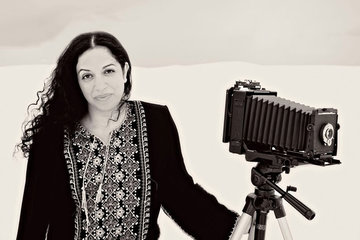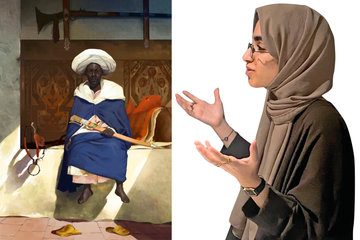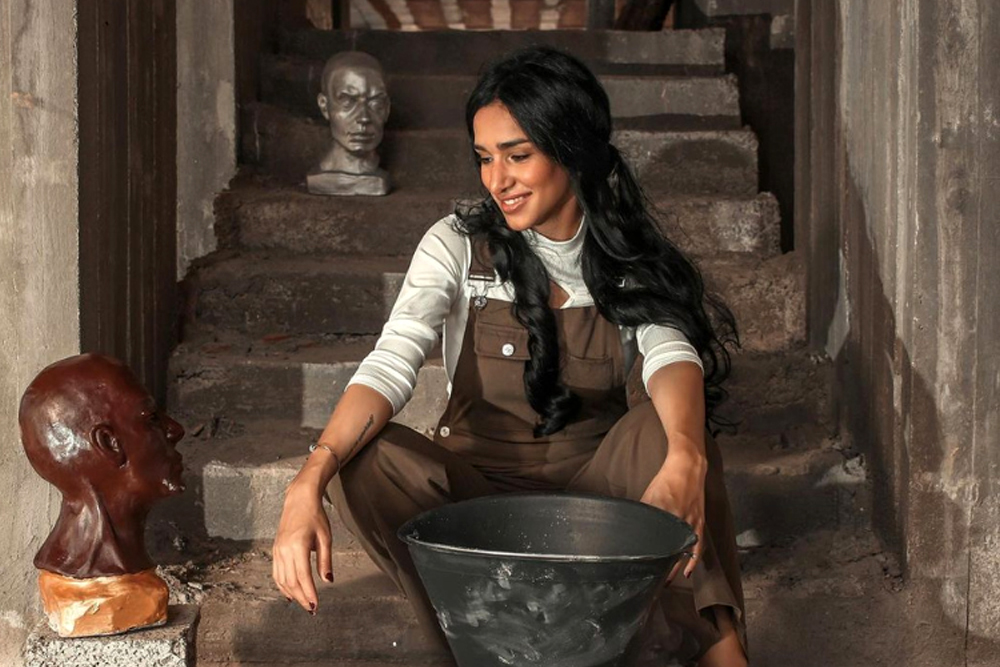
With unwavering dedication, Nada Al-Reemi crafts clay into masterpieces, intricately sculpting facial features for hours until each artwork achieves perfection.
The Saudi sculptor, discovered her talent through curiosity. Her first sculpture brought her immense joy and surpassing satisfaction. Encouraged, she continued sculpting, solidifying her belief that she could create anything, including a representation of her own features.
Al-Reemi's passion for art traces back to her childhood, where she found joy in painting and playing with clay. Her mother played a significant role in nurturing her artistic inclinations by teaching her how to shape objects with clay.
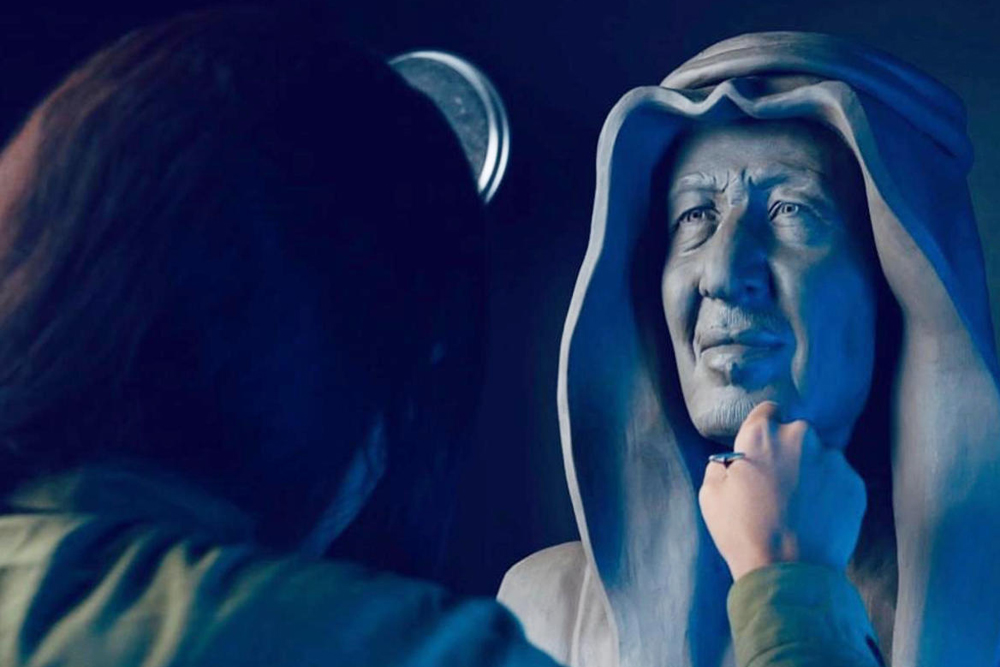
Recognizing the transformative effect art had on her, Al-Reemi's family encouraged her to pursue a career in the field. She took their advice to heart and enrolled in classes and workshops that concentrated on using clay as a medium. Despite having showcased her unconventional artwork in over seven galleries, Al-Reemi believes that sculpture is not yet a widely appreciated art form among locals.
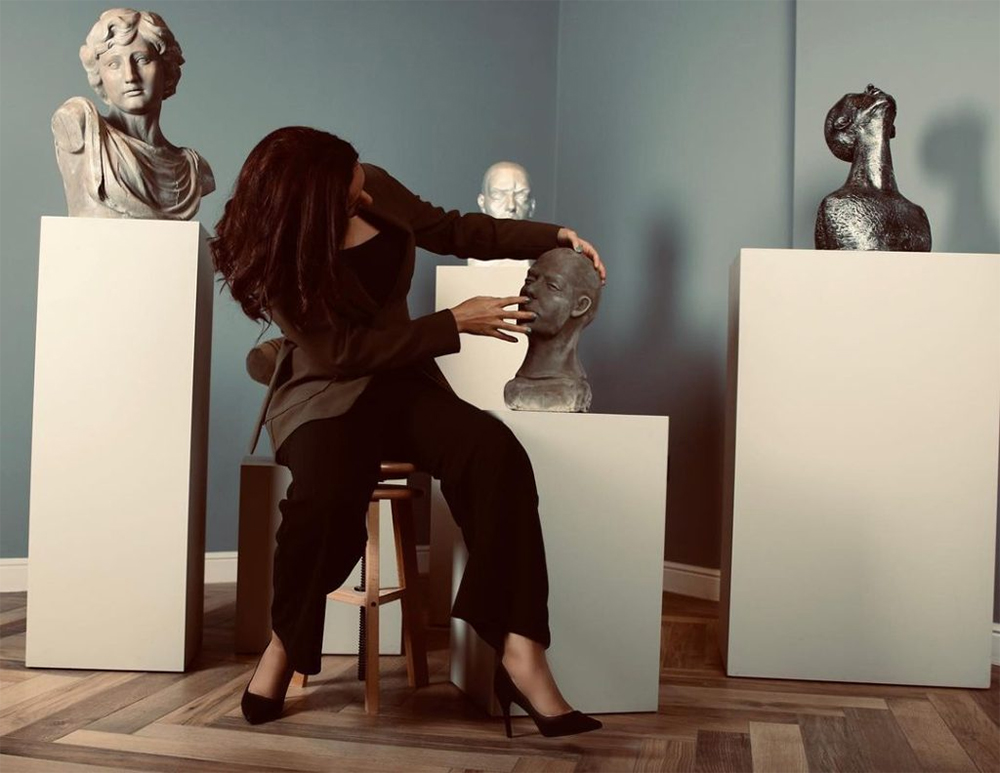
Al-Reemi believes that art has a unique ability to facilitate self-reflection and help individuals overcome psychological barriers caused by excessive rumination. Consequently, she channels her emotions into her sculptures, allowing her to express herself and find solace. She shared an example
of sculpting a character she named the "angry man," symbolizing her personal experience with anger.
In 2020, Al-Reemi obtained certification as a painting and sculpture instructor from the Canadian American Board for Professional Training. Since then, she has taught numerous classes in Saudi Arabia and the United Arab Emirates. Sculpting takes commitment and patience because each session can last up to seven hours. Completing a sculpture typically requires two to three sessions. Among her notable works, Al-Reemi considers her sculpture of King Salman as one of her best, having dedicated more than 21 hours across three sessions to its creation.
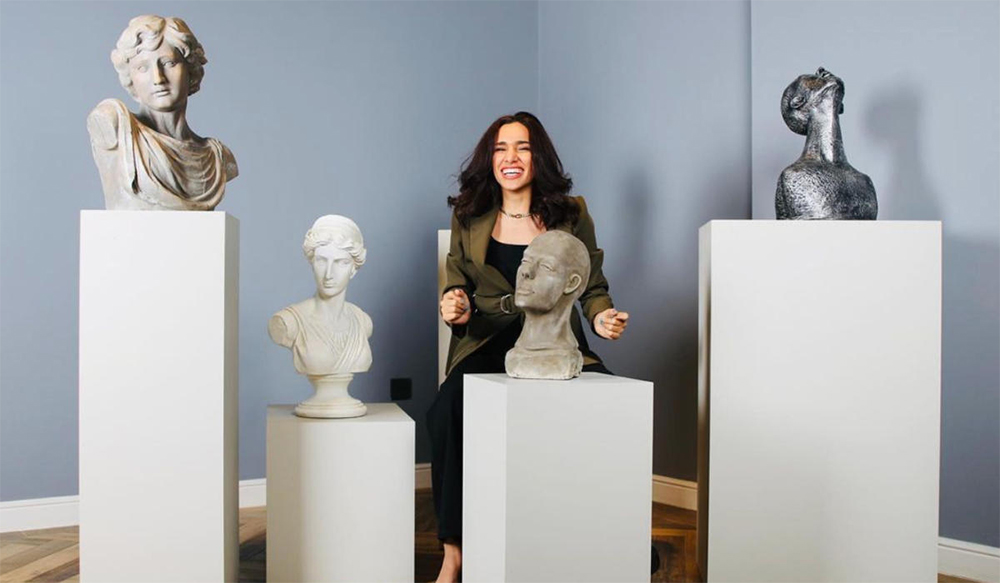
Al-Reemi aspires to shed more light on the sculpture scene and dreams of exhibiting her sculptures in prominent locations such as the Kingdom's roundabouts and squares. She hopes to create a sculpture that will be recognized as a significant contribution to modern art and find its place in history books. She acknowledged the Kingdom's deep commitment to various art forms, citing the Tuwaiq Sculpture, launched in 2020, as an exemplary initiative that offers workshops and classes for sculpture artists. This support serves as a significant encouragement for artists to express themselves through the medium of sculpting.
The Tuwaiq Sculpture symposium elevates Riyadh's cultural status, uniting local and foreign artists to create public artworks, fostering domestic and international awareness, and showcasing Saudi Arabia's artistic vitality.


